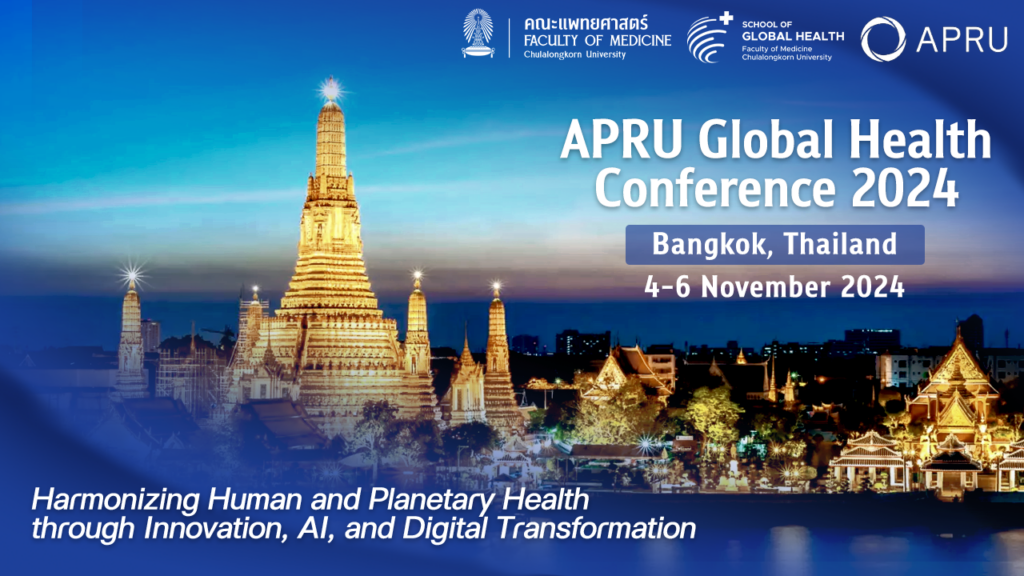Abstracts submitted to APRU 2024 will be reviewed by an international review panel and the APRU 2024 Organizing Committee. Abstracts will be scored for global health significance, impact, novelty, appropriateness of methods, presentation for results, and overall clarity.
The highest-scoring abstracts will be selected for oral presentation in sessions or as posters to be displayed on the website and on-site.
APRU welcomes submissions of abstracts to the following tracks:
Track A: Harnessing Digital Transformation and Artificial Intelligence for Health
Topics may include innovative applications of AI for disease diagnosis and treatment, digital health interventions for improving patient outcomes, data-driven approaches to public health surveillance, and ethical considerations in the use of digital health technologies.
Track B: Health Financing, Geopolitics, Bioethics, and Education
Submissions are encouraged to address diverse topics such as funding mechanisms for health initiatives, the geopolitical determinants of health disparities, ethical considerations in health policy decision-making, and strategies for enhancing health education and literacy.
Track C: Climate Change, Pollution, and Planetary Health
This track explores the multifaceted impacts of climate change and pollution on human health and planetary well-being. Submissions may examine the health effects of environmental degradation, strategies for mitigating climate-related health risks, community resilience to environmental hazards, and interdisciplinary approaches to promoting planetary health in the face of environmental challenges.
Track D: Health Systems
Track D focuses on the design, implementation, and optimization of health systems to enhance the resilience and effectiveness of healthcare delivery. Submissions may address topics such as health system strengthening, strategies for achieving universal health coverage, innovative approaches to healthcare financing and governance, and the role of technology in optimizing health service delivery.
Track E: Non-Communicable Diseases
This track encompasses a broad range of non-communicable diseases (NCDs) and related health issues, including mental health, substance use, women’s health, maternal and child health, cancer, and diabetes. Submissions may explore epidemiological trends, innovative interventions for NCD prevention and management, health disparities in NCD burden, and strategies for promoting holistic approaches to NCD care.
Track F: Communicable Diseases
Track F focuses on the prevention, control, and management of communicable diseases, including but not limited to COVID-19, antimicrobial resistance, and pandemic preparedness. Submissions may address topics such as infectious disease surveillance, vaccine development and distribution, One Health approaches to zoonotic disease prevention, and strategies for enhancing global pandemic preparedness and response.
Abstract Structure Options:
- Lessons Learned Abstracts:
- Background: Statement of the issue
- Description: Describe the project or initiative
- Lessons Learned: Key insights gained from the project
- Next Steps: Planned actions for the future based on project outcomes
- Research Abstracts:
- Background: Statement of the issue or hypothesis
- Objectives:
- Materials and Methods: Description of study methodology, including statistical analyses
- Results: Presentation of study findings
- Conclusions: Summary of findings supported by results
Submission Details:
Abstracts should adhere to a maximum word count of 300 words and be submitted through the conference website: aprughbkk2024.org.
Please note that unfortunately, travel grants are not available for accepted oral and/or poster abstracts.
Join us in contributing to the advancement of global health by submitting your abstracts. For more information and updates, visit the conference website.

